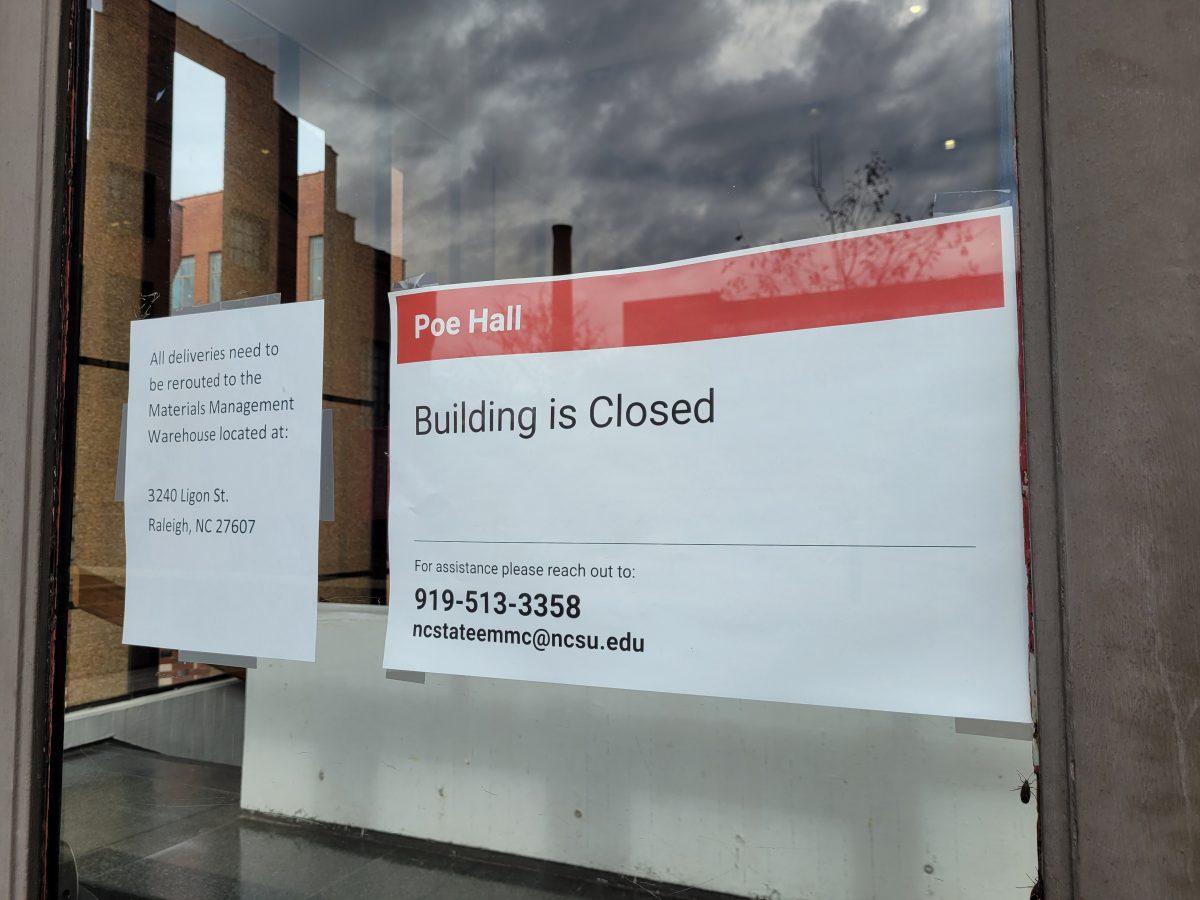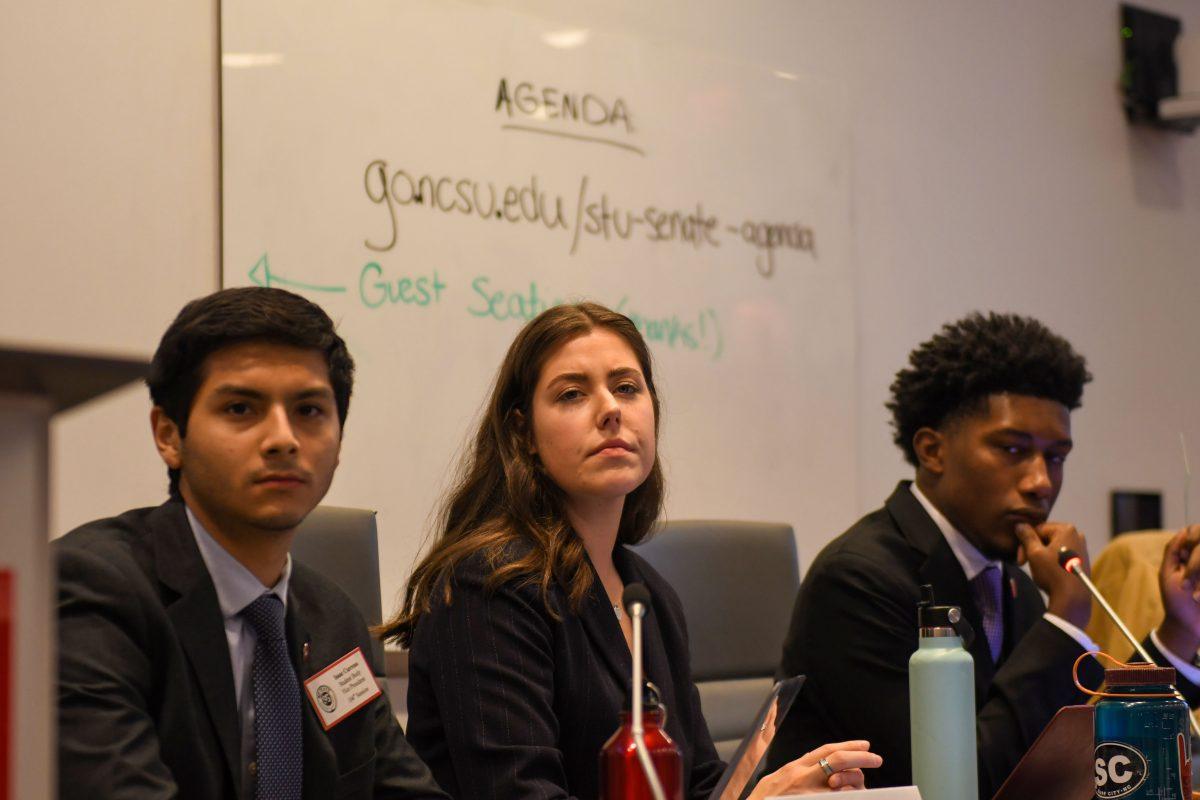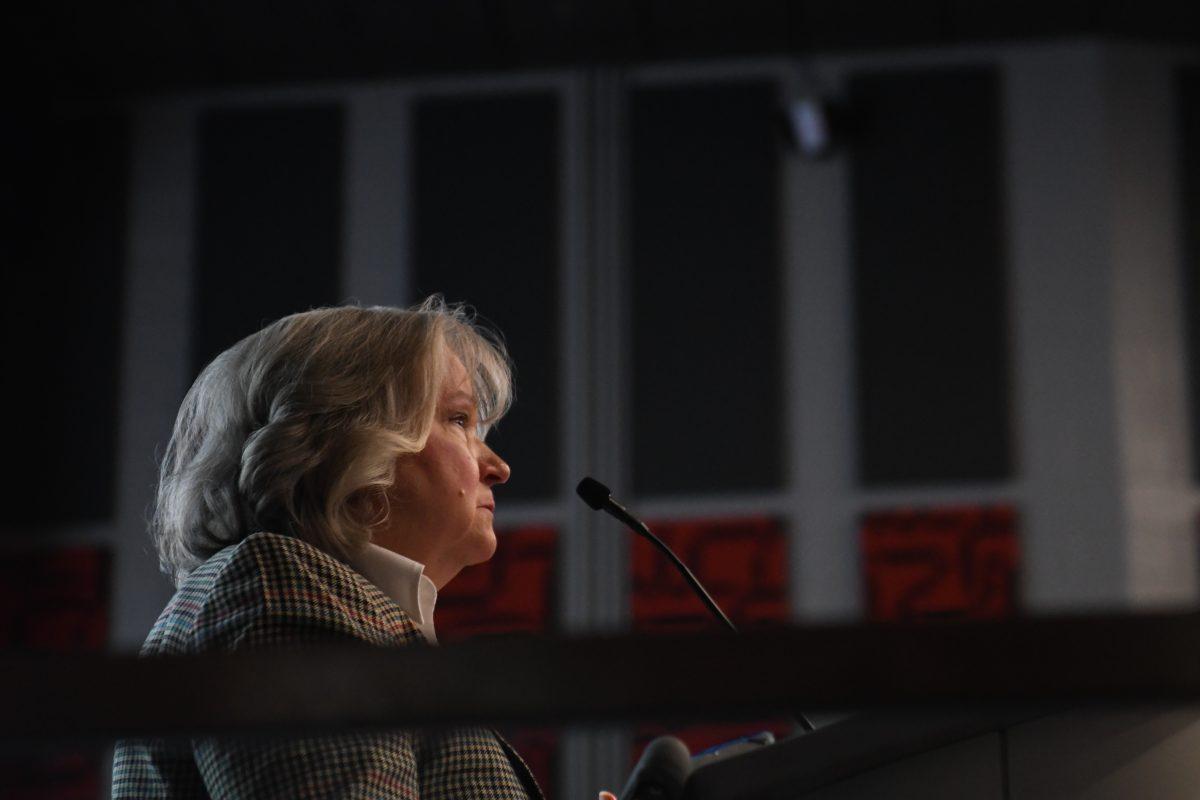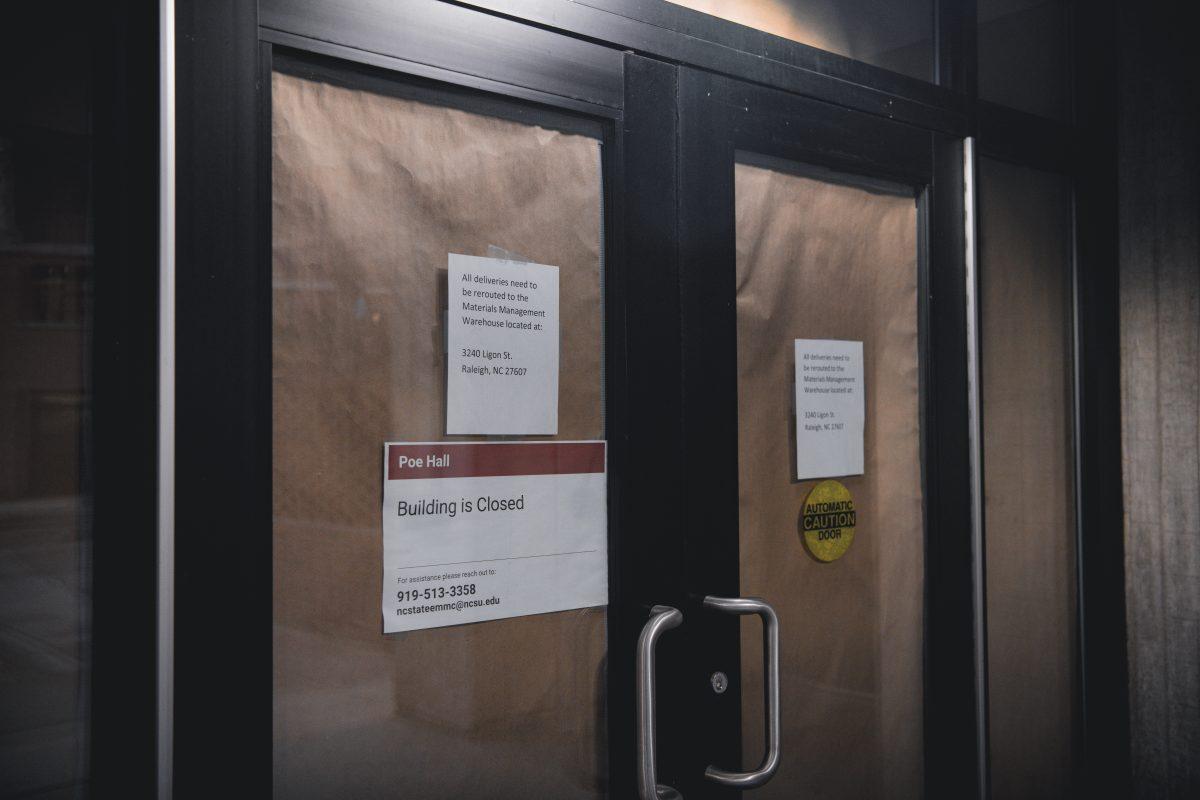Poe Hall, home to the NC State’s College of Education and Department of Psychology, closed last month after testing revealed the presence of potentially harmful chemicals in the building. The building will be closed through the beginning of the spring semester.
In an email statement to Technician, Senior Director of Environmental Health, Amy Orders, said the University began testing Poe Hall for environmental contaminants in August.
“In response to a question raised in August, the university initiated an internal environmental assessment,” Orders wrote. “Preliminary testing indicated that asbestos and heavy metals are within acceptable limits.”
Aroclor 1262, a polychlorinated biphenyl, was found after further testing of the building’s ventilation system in October and November.
PCBs are man-made chemicals that were widely used in manufacturing electronics up until their ban in 1979 for links to cancer cases. Poe Hall was constructed in 1971.
Poe Hall closed Nov. 17 and will remain closed through the beginning of the spring semester. Orders said the University closed Poe Hall as soon as it was clear that PCBs were present.
Since its closing, many classes in Poe Hall have transitioned to online learning. College of Education and Department of Psychology resources have been relocated to areas of D.H. Hill Jr. Library and Talley Student Union.
Raina Massey, a second-year studying elementary education, said the building’s closure will have a significant impact on them and their peers’ educations.
“At the moment, we don’t know where our classes are going to be in the future,” Massey said. “We don’t know how long it will take before the building is up and running, or if it will ever be again, … which is just a little bit frustrating knowing that this was a place that I was going to be for a couple of years, and now, I don’t have that place. And the same with so many other education majors.”
Lee Wilson, a third-year studying math education, said he found the University’s closing of Poe Hall appropriate, but questioned why it was closed in November after a concern was raised in August.
“The question is, ‘Why did they wait so long?’” Wilson said. “Totally get they’re waiting for it to get to really bad levels, and you have so many students and faculty in there — they should at least know about it beforehand. So that way, in case other people are also experiencing symptoms, it can come to alert as soon as possible.”
Makena Neale, a first-year studying microbiology, said she does not understand why PCBs are being found now, knowing that PCBs stopped being incorporated into buildings after the 1970s.
“This is an old building, there’s no way they’re not doing these tests frequently,” Neale said. “There had to be something that triggered it or some worry of some health problems and people started going and testing it, because I just don’t understand how they’re finding it now and not 50-some years when the building was actually built.”
Maddie Martin, a fourth-year studying psychology, said she does research on children ages six to 12. She said her main concern with the news of PCBs in Poe is potentially exposing children to contaminants after using resources stored in the building such as tablets, forms and prizes.
“My professor was very worried about what we had just been giving or exposing a bunch of six to 12-year-old children for the past like two years,” Martin said. “That was a little bit more of a worry that she had than a normal class that’s just been like, ‘You sat in the classroom,’ but for a six-year-old, that might be a little bit more bad to be exposed to.”
Orders said the University does not have enough information to determine if PCBs can be detected on the surface of objects. She said in an email that the University is still working to determine the source of the PCBs and the path forward.
Emilia Smith, a first-year studying special education, said she is concerned about the potential health risks of taking classes in and living near Poe Hall.
“I know it’s a lot of cognitive risks, as well as dizziness, lack of sleep, insomnia, all of that,” Smith said. “But I know there’s also some menstrual risks which is really, really concerning.”
Orders said the University is still in the preliminary stages of testing, and there is not enough information to know the extent to which Poe’s PCB presence could be a health concern.
“The university is engaging with an outside consultant to conduct more comprehensive environmental testing to help us better understand the environment in the building,” Orders wrote in an email. “Until we have this information, we cannot provide definitive guidance about what, if any, remediation or cleaning is needed or whether the findings are cause for concern from a health perspective.”
Orders said if students are concerned about their health, they should visit Campus Health or their primary physician.
“Until we have further information, we cannot provide definitive guidance about whether the findings are cause for concern from a health perspective,” Orders wrote in an email.

















